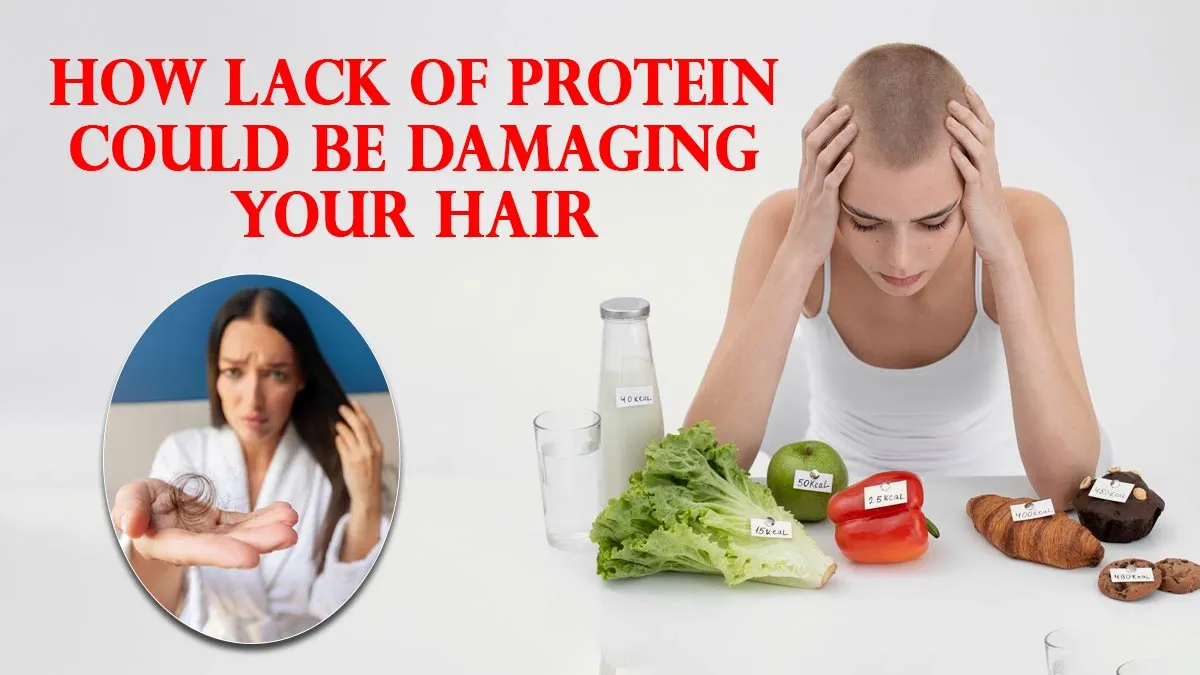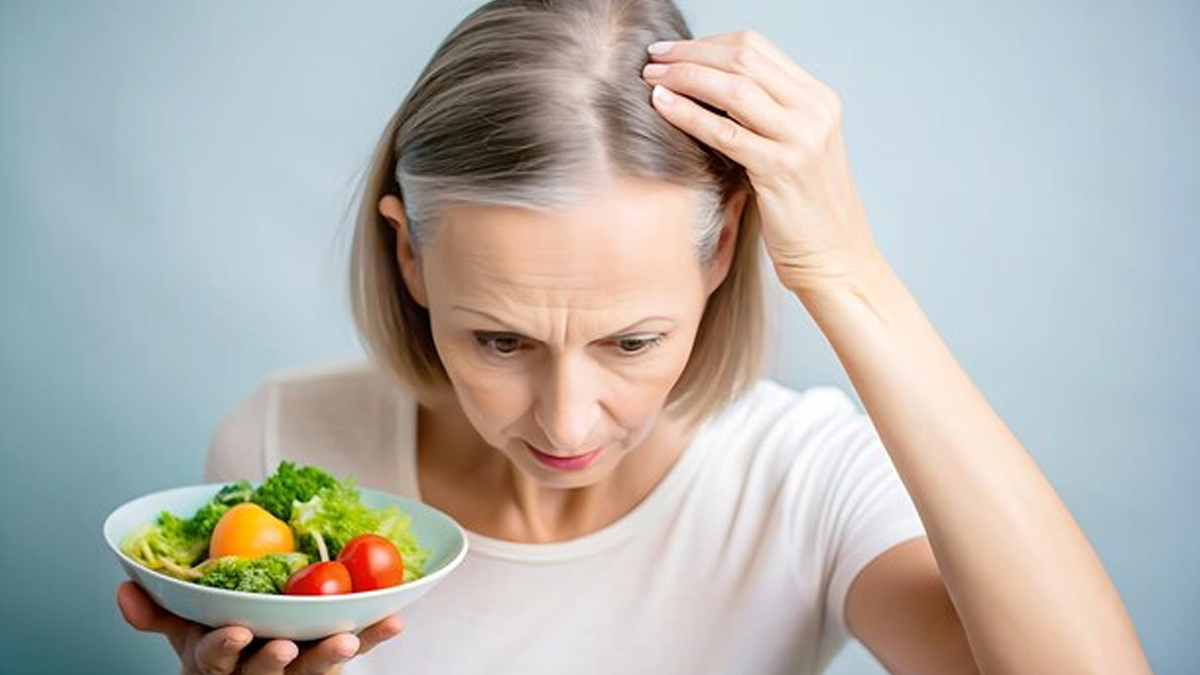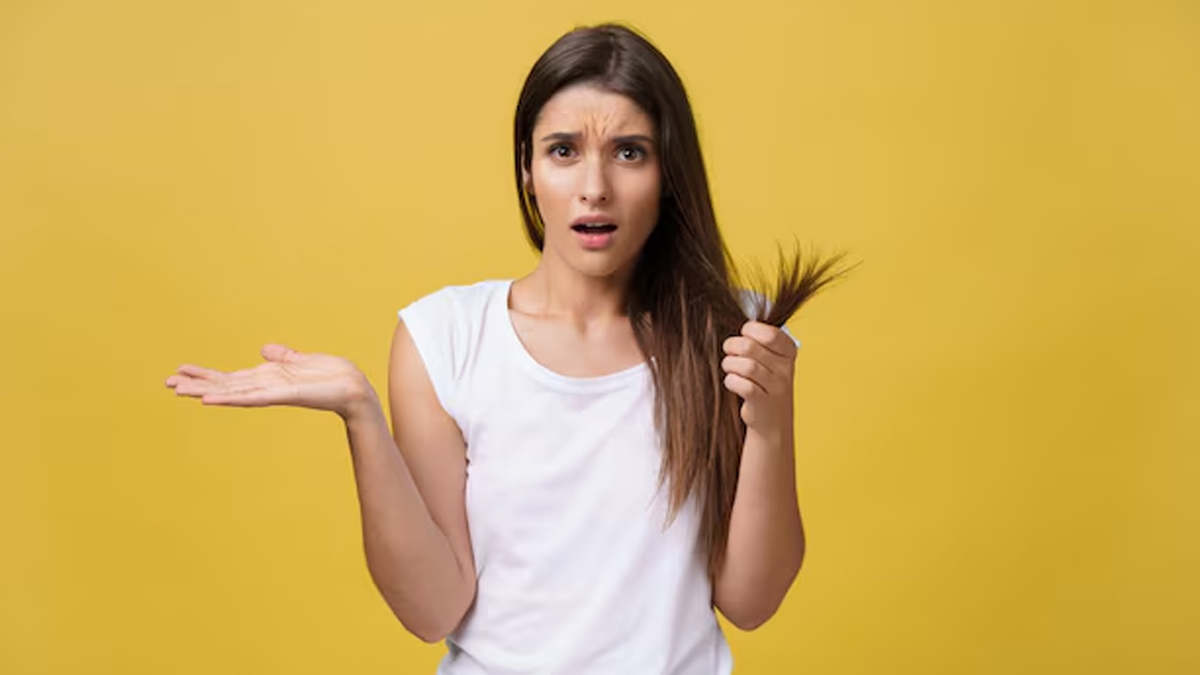
Are your hair strands breaking easily, thinning, or shedding more than usual? You might blame stress, pollution, or harsh hair products, but the real issue could be lurking on your plate. Hair health isn’t just about what you apply externally as it’s deeply tied to your diet, especially protein intake. Protein is the building block of hair, and without enough of it, your locks can lose strength, shine, and vitality. While serums and shampoos promise quick fixes, they can’t compensate for internal nutritional gaps. An expert breaks down the science behind protein’s role in hair health, shares insights on spotting protein deficiency, and offers simple dietary tweaks to rescue your hair from damage.
Table of Content:-
Why Does Your Hair Need Protein?
View this post on Instagram
Hair is primarily made of keratin, a structural protein that relies on amino acids (protein’s building blocks) for growth. Dr Aditya Shah, Dermatologist, Aura Laser and Cosmetic Clinic, Vadodara, explains: “90% of your hair is keratin. If your diet lacks essential amino acids, the hair growth cycle gets disrupted, leading to weak, thin strands.”
Here’s how protein impacts your hair:
- Strengthens strands: Keratin forms a protective layer around the hair, preventing breakage.
- Supports growth: Hair follicles need protein to produce new cells during the growth phase.
- Prevents shedding: Low protein shifts hair into the ‘resting phase,’ increasing fallout.
Are You Protein-Deficient? Signs to Watch For

Dr Shah highlights that protein deficiency is common in India due to carb-heavy diets like paratha, rice, dal, and sabji. “The average adult needs 50–60 grams of protein daily, but most fall short,” he says.
Symptoms of protein-related hair damage:
- Excessive hair shedding (more than 100 strands/day).
- Brittle, dry strands that snap easily.
- Slow hair growth or thinning patches.
- Dullness and loss of volume.
ALSO READ: Naturally Strong Nails: Learn The Role Of Antioxidants In Repair And Growth
What Science Says: The Protein-Hair Loss Link
A study in the Journal of Cosmetic Dermatology found that participants with hair thinning had significantly lower protein levels compared to those with healthy hair. Researchers noted that insufficient protein intake disrupts the hair follicle’s growth cycle, leading to shorter growth phases and prolonged shedding.
How to Fix Protein Deficiency: Expert-Backed Tips

Dr Shah stresses, “Your hair won’t stay nourished with serums and shampoos alone. Internal nutrition is key.” Here’s how to boost protein intake:
1. Add Protein-Rich Foods to Every Meal
- Vegetarian sources: Paneer, lentils (dal), chickpeas, quinoa, nuts, and seeds.
- Non-vegetarian sources: Eggs, chicken, fish, and Greek yogurt.
2. Snack Smart
Swap sugary treats with roasted chana, almonds, or protein bars.
3. Supplements (If Needed)
Consult a doctor before opting for protein powders or collagen supplements.
4. Track Your Intake
Use apps to ensure you’re hitting daily protein goals.
ALSO READ: Is Atopy And Eczema The Same? Expert Shares The Difference Between The Skin Issues
Conclusion
Your hair’s health is a direct reflection of your diet and protein plays a starring role. Without enough of it, your strands can become weak, brittle, and prone to shedding. While topical treatments may offer temporary fixes, long-term hair strength comes from nourishing your body with the right nutrients. By incorporating protein-rich foods into your meals and staying mindful of your daily intake, you can support healthier, stronger hair from the inside out.
Also watch this video
How we keep this article up to date:
We work with experts and keep a close eye on the latest in health and wellness. Whenever there is a new research or helpful information, we update our articles with accurate and useful advice.
Current Version